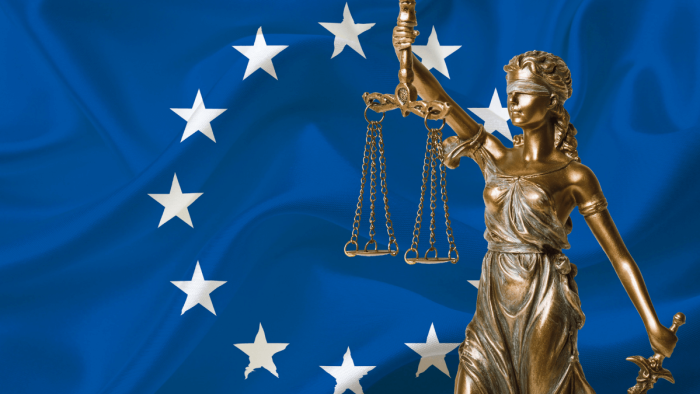
- European Parliament’s recognition of the need to protect fundamental rights and promote procedural safeguards is welcome, but the proposed improvements do not go far enough.
- Serious concerns about proposals for European Arrest Warrants (EAWs) to be used for new, broadly-defined offences.
- European Commission must act urgently to address gaps in safeguards and ensure that judicial control is not watered down.
International criminal justice NGO, Fair Trials has raised concerns about the threat to political activism in Europe after MEPs voted for proposals to extend the list of offences that can be used to issue a European Arrest Warrant.
These include crimes against constitutional integrity of the Member States committed by using violence and offences involving a serious threat against public order . Fair Trials is concerned that the broad definition of these offences could put people at risk of being detained and deported for political activism.
Fair Trials Director of Law and Policy (Europe), Laure Baudrihaye-Gérard said:
The EAW is being used disproportionately, resulting each year in thousands of people being deported and detained because they are accused of committing a crime sometimes minor offences – in a country where they don’t live in total disregard of their right to free movement in the common European space.
Without proper safeguards, the introduction of new broadly-defined offences could make this situation worse and puts Europe at risk of becoming an unsafe place for political activism.
We need to reinforce safeguards and in particular the role of judicial authorities in upholding people s rights, not dilute them at a time when the rule of law is increasingly under threat across Europe.
Changes to the EAW were proposed in a report by the Committee on Civil Liberties, Justice and Home Affairs (LIBE), which MEPs voted for on Wednesday January 20.
Fair Trials welcomed the European Parliament s recognition of the need to protect fundamental rights and promote procedural safeguards in the context of the EAW. We also support Parliament s call for the Commission to work on pre-trial detention. However, the proposals do not go far enough to prevent abusive use of the EAW.
EAWs threaten people’s fundamental rights in many ways:
- The EAW was designed to be used to increase EU cooperation over serious cross-border crimes but instead it is being used to detain and deport people for minor crimes. This is a wholly disproportionate use of state power. Fair Trials has heard about cases where the EAW has been used to deport people for stealing two videogames, stealing a Christmas tree and even stealing a toothbrush.
- Pre-trial detention should be a last resort but if you’re arrested under an EAW, you ll almost certainly be detained because you’re not a resident in the country where you’ve been accused of a crime. This means that accused people are effectively being penalised for exercising their right to free movement in the EU.
- EAWs are issued even if other mechanisms are available for instance to interrogate a person remotely rather than have them arrested, deported and detained.
- EAWs are often issued well before a case is ready to go to trial, meaning that a person can be held in prison for unnecessarily long periods of time.
- Europe is suffering a long-standing prison crisis due to inhuman and degrading prison conditions and overcrowding largely driven by excessive use of detention during the investigation prior to trial, when a person is still presumed innocent. Judicial authorities are resorting to detention and EAWs all too easily, without considering the impact on the affected person. This is contributing to Europe s problem with overcrowded prisons.
- The EAW is also being used to deport people to countries where the rule of law is under threat. Cases have been brought to the CJEU about Poland but there are a number of European countries where a person s right to a fair trial and access to an independent court is of serious concern.
- People who are deported are also at risk of inhumane and degrading treatment in many of Europe s prisons.
- In today s COVID-19 crisis, being deported and imprisoned presents an immediate threat to a person s health and life, especially for vulnerable people.
As well as reforming the EAW mechanism, Fair Trials is calling for the EU to adopt standards restricting the use of detention in domestic and cross-border proceedings to a measure of last resort. Even if detention is considered necessary, there are alternatives, less restrictive measures to the EAW that must be considered before turning to the EAW. These include the European Supervision Order, which, unlike the EAW, is rarely used.
Fair Trials is due to publish a briefing that outlines exactly how the EAW should be reformed. To receive a copy, please contact communications@fairtrials.net


